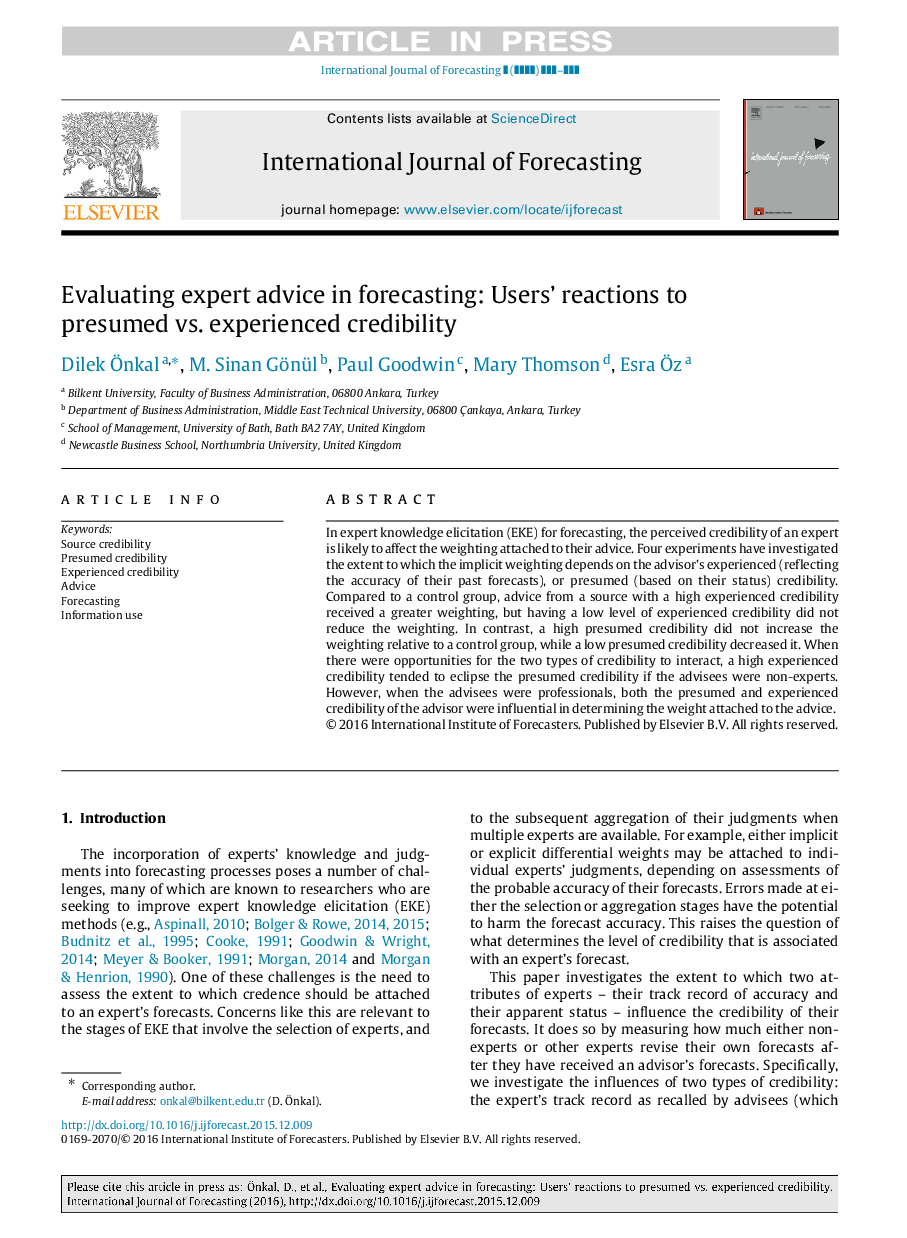| Article ID | Journal | Published Year | Pages | File Type |
|---|---|---|---|---|
| 5106389 | International Journal of Forecasting | 2017 | 18 Pages |
Abstract
In expert knowledge elicitation (EKE) for forecasting, the perceived credibility of an expert is likely to affect the weighting attached to their advice. Four experiments have investigated the extent to which the implicit weighting depends on the advisor's experienced (reflecting the accuracy of their past forecasts), or presumed (based on their status) credibility. Compared to a control group, advice from a source with a high experienced credibility received a greater weighting, but having a low level of experienced credibility did not reduce the weighting. In contrast, a high presumed credibility did not increase the weighting relative to a control group, while a low presumed credibility decreased it. When there were opportunities for the two types of credibility to interact, a high experienced credibility tended to eclipse the presumed credibility if the advisees were non-experts. However, when the advisees were professionals, both the presumed and experienced credibility of the advisor were influential in determining the weight attached to the advice.
Related Topics
Social Sciences and Humanities
Business, Management and Accounting
Business and International Management
Authors
Dilek Ãnkal, M. Sinan Gönül, Paul Goodwin, Mary Thomson, Esra Ãz,
